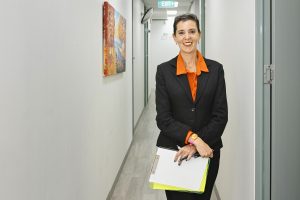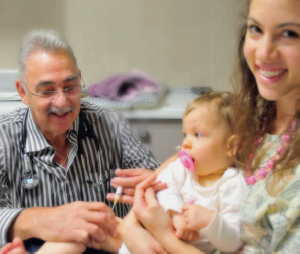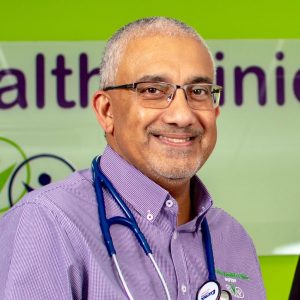Celebrating the achievements of our members
It’s time to hang up the “out of office” sign at GPSA and wish all our members a Merry Christmas and Happy New Year.
For those who are unable to take a break or will be on-call over the festive season, thank you for your work and we hope you enjoy what time you can with family and friends (furry ones count).
The GPSA office will be closing at noon on Tuesday (December 24) and reopens on Thursday, January 2.
To round off the year we have put together a GP Supervisor “roll of honour” for 2019 – the supervisors who have received GPSA Recognition of Service Awards and those whose work has been recognised by a regional training organisation or at a national level by the RACGP.
In the past 12 months, GPSA has been contacted by medical practices nominating 39 GP supervisors for Recognition of Service.
Please say congratulations (and a big thank you) to these doctors (listed below) for their contribution to GP training during their careers. Special mention goes to Dr Clive Ronan, from Yarrawonga, Victoria, for his 35 plus years of service.
Another of our members, Dr Raphael Torome, took out the prestigious honour of being named the General Practice Supervisor of the Year by the Royal Australian College of General Practitioners. Dr Torome works at the Lake Bonney Private Medical Centre in Barmera in the South Australian Riverland.
Next year will be an exciting one for GPSA with a number of important research projects underway to complement our work producing the free, open-access teaching resources and advocating for our members.
We will continue to keep you up-to-date on our progress through our regular eNews editions.
Until then, we wish you a safe and happy festive season.
Regards,
The board and staff at GPSA
GPSA Recognition of Service Awards
35+ years
Clyde Ronan, Yarrawonga Medical Clinic, Victoria
30+ years
Robert Karmouche, Ballarat Group Practice, Victoria
Penny Browne, Hornsby GP Unit, NSW
Geoff Norman, Nambour Medical Centre, NSW
Simon Hosking, Aberdovy Clinic Bundaberg, Queensland
25+ Years
Michael DeVries, Winmalee Medical Centre, NSW
David Welch, Stuart Park Surgery, Northern Territory
Neil Donovan, Berry Medical Centre, NSW
Deborah McClure, George Street Medical Practice, Bathurst, NSW
20+ Years
Bruce Watts, CHC Medical Centre. Coffs Harbour, NSW
Shaunagh Jones, Knopwood Medical Centre, Rokeby, Tasmania
Diana House, The Doctor House, Yungaburra, Queensland
Sheilagh Cronin, Flinders Medical Centre, Cloncurry, Queensland
15+ years
Timothy Fitzpatrick, Terang Medical Clinic, Victoria
Gerard Travers, Dr Foster & Associates, Bunbury, Western Australia
James Allen, Hills Medical Service, Aldgate, South Australia
Fouad Dawood, Hill Medical Services, Aldgate, South Australia
Anna Schettini, Health at Campbelltown, South Australia
Malcolm Altson, Euroa Medical Family Practice, Victoria
Denise Powell, Millbank Medical Practice, Bundaberg, Queensland
Tiffany Jones, Dee Why General Practice, NSW
Christopher Boyle, Raymond Terrace Family Practice, NSW
James Bushell, The Medical Clinic Millicent, South Australia
Craig Morris, Banyo Clinic, Queensland
10+ Years
David Foley, Hawkesbury Family Practice, NSW
Tom Chao, Buranda Family & Wynnum Plaza medical centres, Queensland
Mohammed Sultan, Family Health Clinic Gatton, Queensland
Tim Slimming, Seacombe Medical Centre, South Australia
Christine Lucas, Investigator Clinic, Port Lincoln, South Australia
Sue Masel, Goondiwindi Medical Centre, Queensland
Kate Manderson, Worrigee Street (Nowra) Medical Centre, NSW
Matt Masel, Goondiwindi Medical Centre, Queensland
Frank Brunacci, Prospect Medical Centre, Tasmania
Kim Manias, Stuart Park Surgery, Northern Territory
Stephan VanEeden, The Medical Clinic Millicent, South Australia
Virja Panday, ATSICHS Mackay, Queensland
Stephen Ross, Young District Medical Centre, NSW
Peter Spafford, Gorge Health, Northern Territory
Andrew Png, Kwinana & Aubin Grove medical centres, Western Australia
Download: GPSA Recognition of Service roll of honour 2019
RACGP General Practice Supervisor of the Year
RACGP General Practice Supervisor of the Year – Dr Raphael Torome
QLD General Practice Supervisor of the Year – Dr Clare Maher
VIC General Practice Supervisor of the Year – Dr Niroshe Amarasekera
TAS General Practice Supervisor of the Year – Dr Jane Hampson
SA and NT General Practice Supervisor of the Year – Dr Raphael Torome
WA General Practice Supervisor of the Year – Dr Derrick Kuan
NSW and ACT – Not awarded
GP Synergy
Nepean, Western & Northern Sydney
Supervisor of the Year – Dr Chris Coghill
Practice Manager of the Year – Mr Troy Rutz
Central, Eastern and South Western Sydney
Supervisor of the Year – Dr Irina Chernyak
Practice Manager of the Year – joint award winners Victoria Gassner and Des Clarke
New England/Northwest
Supervisor of the Year Award – Dr Casey Sullivan
Practice Manager of the Year Award – Ms Sarah Freeman
Hunter, Manning and Central Coast
Supervisor of the Year – Dr Christopher Boyle
Practice Manager of the Year – Ms Karenne Keane
South Eastern NSW
Supervisor of the Year Award – Dr Jarrod Alkemade
Practice Manager of the Year Award – Ms Sarah Pryor
Murrumbidgee and ACT
Supervisor of the Year – Dr Nicholas Hamilton
Practice Manager of the Year – Ms Greta Evans
Western NSW
Supervisor of the Year – Dr Catherine Stewart
Practice Manager of the Year – Ms Sonya Sewell
North Coast
Supervisor of the Year Award – Dr Marion Tait
Practice Manager of the Year Award – Ms Dianne Kerr
EVGPT
2019 EV Supervisor of the Year – Metropolitan
Dr Terence Heng, Nunawading Clinic
2019 EV Supervisor of the Year – Rural
Dr Lloyd Waters, Clocktower Medical Centre, Sale
(Note: Not all RTOs hold their own annual awards but we have included the winners of supervisor awards for those that do.)
Date reviewed: 18 December 2019
Please note that while reasonable care is taken to provide accurate information at the time of creation, we frequently update content and links as needed. If you identify any inconsistencies or broken links, please let us know by email.
Help build a clinical training framework
 A best practice clinical learning framework is being developed specifically for general practice. Rather than having a quality framework imposed on GP supervisors we would like to inform government, colleges and RTOs what GP Supervisors consider to be the winning recipe for a best practice learning environment for General Practice. To do this we need your views.
A best practice clinical learning framework is being developed specifically for general practice. Rather than having a quality framework imposed on GP supervisors we would like to inform government, colleges and RTOs what GP Supervisors consider to be the winning recipe for a best practice learning environment for General Practice. To do this we need your views.
The aim is to provide a useful-self-reflective approach to training, as well as guiding practices in recognising factors that have the most potential for improving learning quality at the general practice level.
To assist in the development process, GPSA is looking for supervisors to review the first draft of the document and provide feedback on what they think is important in the clinical learning environment.
The new framework will be based on one that is already in use in hospitals, but adapted to the general practice context.
The six elements of the framework being consulted on are:
Anyone interested in participating in the project should contact Dr Helen Hickson at research@gpsupervisorsaustralia.org.au
Date reviewed: 20 December 2019
Please note that while reasonable care is taken to provide accurate information at the time of creation, we frequently update content and links as needed. If you identify any inconsistencies or broken links, please let us know by email.
Have a say on the future of GP supervision funding
 “Nothing about us without us” was the mantra Dr Louise Stone, a former Senior Medical Advisor from the Department of Health recommended as she left her role to stakeholders. Meaning decisions about the profession need to be made in consultation with the profession.
“Nothing about us without us” was the mantra Dr Louise Stone, a former Senior Medical Advisor from the Department of Health recommended as she left her role to stakeholders. Meaning decisions about the profession need to be made in consultation with the profession.
Now GP supervisors are being given an opportunity to have a say on how GP supervision could be funded in the future.
GP Supervisors Australia has been asked by the Australian Government to review funding for GP supervision as it now stands and develop a range of alternative models designed to improve support to GP supervisors.
Stage one of the project will give the Government a greater understanding of how current supervisory arrangements operate within practices including supervisor payments in Australia.
Stage two will provide a range of options to improve and streamline supervisor support mechanisms that could be further investigated by the Department of Health.
“This is an important opportunity to have some input into how funding for the GP training model could look going forward,” GPSA chief executive Glen Wallace said.
“We will be working with organisations across training programs that interact with supervisors to collect details on the current situation but we would also like to speak to supervisors about their own vision for supervision funding beyond 2021.”
Supervisors willing to participate in a one-hour interview for this project can register here.
A $200 Mastercard Gift Card voucher will be given to participants interviewed as a thank you.
For further information, the project’s scope of works can be downloaded here.
Date reviewed: 06 February 2020
Please note that while reasonable care is taken to provide accurate information at the time of creation, we frequently update content and links as needed. If you identify any inconsistencies or broken links, please let us know by email.
Is there a recipe for a good GP supervisor?
 What makes a good GP supervisor?
What makes a good GP supervisor?
It’s a great question for a robust dinner conversation among peers but GPSA is taking it further and documenting the characteristics of “GP supervisors of the Year” to support the development of a GP supervisor curriculum.
To do this we are interviewing past winners and nominees about their supervision practice.
The project will involve a 45-minute interview via Zoom with a qualitative researcher who will analyse the information provided to identify whether GP supervisors of the year have common features.
We would like to hear from winners and nominees from the annual RACGP awards as well as any RTO presentations.
Participants will receive a $150 Visa or Mastercard gift card for their time.
To register interest contact Dr Helen Hickson at research@gpsupervisorsaustralia.org.au or phone 0419 576 214.
Date reviewed: 07 February 2020
Please note that while reasonable care is taken to provide accurate information at the time of creation, we frequently update content and links as needed. If you identify any inconsistencies or broken links, please let us know by email.
It’s been a busy time since I last wrote to you.
RMA19 and GP19 have come and gone. Glen Wallace (GPSA CEO) and myself were able to speak to many members and senior GP training people at those meetings on your behalf.
Single employer model
There has been much discussion regarding a single employer model since the last newsletter. To be clear, it is the unintended consequences of this move that we as GP supervisors are concerned about. Changes need to be thought through very carefully to ensure that by trying to fix one problem, other, greater ones are not created. The last thing we want is to see registrars in a worse position than they are now due to poorly-thought-out industrial relations or HR structures, or practices being unable to afford to take registrars on.
 A meeting was held by the Department of Health with GP training stakeholders on September 19 to discuss options for a single employer model to support Rural Generalist registrars. Such a model would be looking to:
A meeting was held by the Department of Health with GP training stakeholders on September 19 to discuss options for a single employer model to support Rural Generalist registrars. Such a model would be looking to:
Like all GP training stakeholders, GPSA regards Rural Generalism and its aim of providing more GPs for rural and remote Australia as a high priority. However, we feel it important that any proposed single employer model be thoroughly analysed, not only for the benefit for registrars, but also the impact on general practices, supervisors and practice managers. GPSA wrote to Minister Hunt in October to give him some detail on GP supervisor and registrar earnings and practice costs. We also pointed out some of the risks of a single employer model that need to be considered before implementation.
A copy of this letter was sent to other GP stakeholders in the interests of full disclosure and to offer the opportunity for feedback.
While highlighting the potential risks has been uncomfortable for some. Our intent in writing this letter was to represent the views of our stakeholders – supervisors, GP practices involved in GP training, practice managers and support staff.
It is imperative general practices that train registrars are not left disadvantaged by a single employer model, whether that be financially or otherwise.
We would appreciate feedback from our rural and remote members as to your thoughts.
Please email glen.wallace@gpsupervisorsaustralia.org.au
New board member
It is with great pleasure that we welcome Leonie Chamberlain to the GPSA board. Leonie is an experienced practice manager and accountant (CPA) and makes our board truly representative of GP training practices.
UGPA meeting
I also represented GPSA at a recent United General Practice Association (UGPA) meeting. AMA, ACRRM, RDAA, GPSA and GPRA are members. RACGP has a standing invitation to join the group. Issues discussed include Rural Generalism, the single employer model, 10-year primary healthcare plan (being developed by Department Health) and over seventies and chronic care.
Yours in GP training,
Dr Gerard Connors
Chair,
GP Supervisors Australia
Date reviewed: 27 November 2019
Please note that while reasonable care is taken to provide accurate information at the time of creation, we frequently update content and links as needed. If you identify any inconsistencies or broken links, please let us know by email.

GPSA board member Leonie Chamberlain.
Victorian practice manager Leonie Chamberlain has become the first practice manager appointed to the board of General Practice Supervisors Australia (GPSA).
Ms Chamberlain, who joined the board at the November 6 meeting this month, said she was excited about bringing the experience of practice managers to GPSA governance.
“Joining the GPSA board will allow me to expand my knowledge, and give a practice managers’ perspective on issues such as on the workability of future drafts of the NTCER.
“I think a practice manager is an important part of the team when it comes to GP training, and it’s nice to have a voice representing practice managers at GPSA.”
The mother of two children, aged 17 and 20, Ms Chamberlain is the finance and administration manager at one of Victoria’s longest training practices, Blackburn Clinic in Melbourne’s eastern suburbs.
Her role at the Blackburn Clinic includes all financial aspects of the business; HR for 40 part-time nursing, reception and administration staff members; business development; and strategic planning.
During her 18 years at the clinic, Ms Chamberlain has been committed to ensuring registrars receive exceptional clinical training and education about the business of general practice.
“I am passionate about ensuring registrars not only receive great clinical training, but they are also prepared to enter the world of general practice as educated and informed business people,” Ms Chamberlain said.
The recipient of the inaugural Victorian Metropolitan Alliance Practice Manager of the Year Award in 2015, Ms Chamberlain is a respected voice at industry events, Regional Training Organisation (RTO) and practice manager workshops.
She enjoys presenting to registrars on the business of general practice at workshops for Murray City Coast Country General Practice Training (MCCCGPT) and Eastern Victoria General Practice Training (EVGPT).
Ms Chamberlain also shows leadership among her peers, presenting to practice managers on the National Terms and Conditions for the Employment of Registrars (NTCER), recruitment and business development.
Prior to her time at Blackburn Clinic, Ms Chamberlain worked at KPMG’s Melbourne office in the taxation division and more comprehensively in its Middle Market Advisory division, providing services and support to small and medium businesses and high-wealth individuals.
Date reviewed: 22 November 2019
Please note that while reasonable care is taken to provide accurate information at the time of creation, we frequently update content and links as needed. If you identify any inconsistencies or broken links, please let us know by email.

Dr Alan Leeb (pictured) offers his registrars sound advice for communicating with parents about childhood vaccination.
With about 30 years of GP supervision under his belt, and as developer of the vaccine safety surveillance program SmartVax, Perth doctor Alan Leeb offers sage advice to registrars dealing with vaccine-hesitant parents.
“Our approach to vaccine-hesitant parents has changed during recent years.
“It’s important to accept that most vaccine-hesitant parents are just that – hesitant – not necessarily anti-vaxers. They just need additional support to help get them over the line,” Dr Leeb told GPSA.
“If a parent is hesitant, registrars need to understand the importance of showing empathy and providing parents with support as well as easy access.”
Dr Leeb explains to his registrars that vaccines are one of the most successful and cost-effective public health interventions of all time, but there is under-vaccination.
“Despite high vaccination rates of over 95 per cent of children fully vaccinated, there are pockets of low coverage in all states,” he said.
“It is estimated that only 3.3 per cent of non-vaccinated Australian children are vaccine refusers, leaving the bulk of under-vaccinated kids due to logistical factors, missed opportunities and delays in vaccine delivery.”
Dr Leeb said GP supervisors should teach their registrars the most important determinant of vaccination uptake was recommendation by a health care provider.
“Registrars need to understand the impact that simple interventions may have,” he said.
“Parents don’t want motherhood statements that ‘All vaccines are safe and work,’ they want the facts about vaccine safety, effectiveness and disease severity to be able to interpret the risks and benefits within their own frame of reference and moral belief system.
“Parents who have questions about vaccines and are sitting on the fence care deeply for their children and want to do the right thing but often remain conflicted and scared.
“It is our role as the trusted health care provider to build their trust and confidence in our immunisation program.
“The timing of our vaccination program is important and has been carefully devised, therefore timely delivery of vaccination is important.
“Many parents may seem to be vaccine-hesitant parents, but for various reasons they are actually late vaccinators and logistical issues including family size, and missed opportunities are common factors.”
Dr Leeb advised supervisors to teach their registrars to always have vaccination in the back of their mind when parents bring children to them for other reasons and opportunistically offer catch-up vaccination.
“Whenever a registrar sees a child, they should have a quick glance at the child’s immunisation records and if required, speak to the parents about vaccinating the child opportunistically while they are in the clinic,” he said.
“Teach your registrar how to be supportive of parents by finding out where they stand and what the individual barriers are.”
Dr Leeb referred GP supervisors to work by Julie Leask who provides some useful tips for health professionals when discussing vaccination with parents who are acceptors, hesitant, late or selective vaccinators, and vaccine refusers. Read the article at https://bmcpediatr.biomedcentral.com/articles/10.1186/1471-2431-12-154
He said the SKAI website http://www.ncirs.org.au/health-professionals/skai-supporting-health-professionals was also a great resource for immunisation providers and parents.
See the GPSA Immunisation and Vaccination Teaching Plan here.
Date reviewed: 14 October 2019
Please note that while reasonable care is taken to provide accurate information at the time of creation, we frequently update content and links as needed. If you identify any inconsistencies or broken links, please let us know by email.
Dr Sultan’s Quest to ensure each registrar reaches their potential
 GP registrars under Dr Mohammed Sultan’s supervision experience a prime example of cradle-to-grave care in a small community.
GP registrars under Dr Mohammed Sultan’s supervision experience a prime example of cradle-to-grave care in a small community.
In one instance, Dr Sultan treated up to four generations of one family – and happily accepted the family’s invitation to attend a milestone celebration for the family’s oldest member.
As the treating GP until the patient moved into a nursing home at 99, Dr Sultan had little hesitation in clearing his calendar to attend his former patient’s 100th birthday.
“We are a family orientated clinic, treating a few generations of some families,” Dr Sultan said from his clinic in Gatton, Queensland.
“This was my first experience of a patient under my care reaching 100 and I was pleased to be there with his family to celebrate his 100th birthday in 2016.”
Family Health Gatton serves a rural population in the Lockyer Valley, about 90km west of Brisbane, and has a wide demographic base in age, gender and medical conditions treated.
Dr Sultan, who trained and graduated in South Africa has practised in Australia for 20 years, and has supervised GPs for about 12 years.
In this time he has supervised between 20 to 25 registrars, and is a recipient of the GPSA Recognition of Service Award (10-plus years).
“It’s absolutely enjoyable to help young doctors grow and mature into great doctors; seeing them along their journey and knowing you have contributed to their learning as a GP,” Dr Sultan said.
“I always say to my young registrars that they probably know a lot of theory of medicine being fresh from uni, but I’m here to share my experiences as a GP, and teach them the practicalities of general practice along with the business and relationships required for them to ultimately be the best doctor he or she can be for every patient under their care.”
Dr Sultan said his journey as a supervisor was prompted by the excellent training he received as a medical student and young doctor in South Africa “from an amazing group of educators and consultants”.
Having trained in an environment where the learner is shown the procedure once, replicates the procedure, and pays the knowledge and skills forward to future doctors underpins Dr Sultan’s motivation to supervise registrars.
“My motivation to supervise is to educate the future community of doctors to be better skilled and knowledgeable of general practice.”
While supervising the future generation of doctors was a rewarding journey, Dr Sultan said it also brought challenges.
He said these challenges included dealing with different levels of knowledge and skill sets among new registrars, helping registrars better understand the transition from a hospital environment to GP setting, and dealing with the different administrative roles.
Dr Sultan’s advice for other supervisors?
“Patience with new registrars; share practice tricks and tips; and make sure that you pass on education of management of GP business and also employee responsibilities, as they differ so much to hospital.”
Date reviewed: 20 July 2022
Please note that while reasonable care is taken to provide accurate information at the time of creation, we frequently update content and links as needed. If you identify any inconsistencies or broken links, please let us know by email.